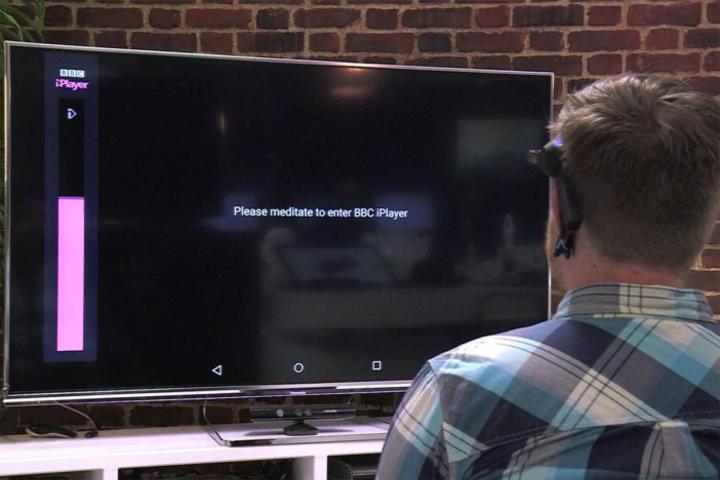
The BBC is experimenting with using a brainwave reading headset developed by London-based user experience studio This Place to allow users to control its iPlayer with their minds. The prototype is somewhat limited in functionality, but on the road to transforming our brains into joysticks, this is still an impressive step forward.
Even more impressive is the fact that it actually works. The BBC tested the prototype on 10 staff members, and while it was more difficult for some than others, all were eventually able to control the iPlayer. Of course, it isn’t as simple as thinking of the show you want to watch and marveling as it appears on the screen — not yet, anyway. The headset uses two sensors placed on the user’s ear and forehead to measure electrical activity in the brain representing “concentration” and “meditation.”
As the headset essentially only monitors whether or not the user is concentrating or meditating, as a binary state, the system needs to separately assist the user in picking a program. In this case, programs are highlighted one by one on the right side of the iPlayer. When the program a user wants to watch is highlighted, the user concentrates until a pink bar on the other side of the screen fills all the way up to select that program.
While this is unlikely to replace the remote control for your average user in the near future, this is a particular breakthrough for those with disabilities that limit their range of movement or dexterity. The BBC describes this as “just a toe in the water” for now, but considering the advances we’re seeing in brainwave reading technology, it will be exciting to watch this develop further. For more information, see the BBC’s blog post on the prototype.


